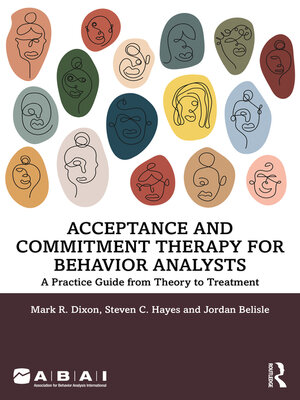Acceptance and Commitment Therapy for Behavior Analysts
ebook ∣ A Practice Guide from Theory to Treatment · Behavior Science
By Mark R. Dixon

Sign up to save your library
With an OverDrive account, you can save your favorite libraries for at-a-glance information about availability. Find out more about OverDrive accounts.
Find this title in Libby, the library reading app by OverDrive.



Search for a digital library with this title
Title found at these libraries:
| Library Name | Distance |
|---|---|
| Loading... |
This book provides a thorough discussion of acceptance and commitment therapy or training (ACT) and a guide for its use by behavior analysts. The book emphasizes how the intentional development of six core behavioral processes – values, committed action, acceptance, defusion, self-as-context, and present moment awareness – help establish the psychological flexibility needed to acquire and maintain adaptive behaviors that compete with maladaptive behavior patterns in verbally able clients.
Split into three parts, the book discusses the history and controversy surrounding the rise of acceptance and commitment strategies in behavior analysis and shows how the processes underlying ACT are linked to foundational behavioral scientific principles as amplified by stimulus equivalence and relational learning principles such as those addressed by relational frame theory. In a careful step-by-step way, it describes the best practices for administering the acceptance and commitment procedures at the level of the individual client, organizational systems, and with families. Attention is also given to the ethical and scope-of-practice considerations for behavior analysts, along with recommendations for conducting on-going research on this new frontier for behavior analytic treatment across a myriad of populations and behaviors. Written by leading experts in the field, the book argues that practice must proceed from the basic tenants of behavior analysis, and that now is the opportune moment to bring ACT methods to behavior analysts to maximize the scope and depth of behavioral treatments for all people.
Acceptance and Commitment Therapy for Behavior Analysts will be an essential read for students of behavior analysis and behavior therapy, as well as for individuals on graduate training programs that prepare behavior analysts and professionals that are likely to use ACT in their clinical practice and research.






